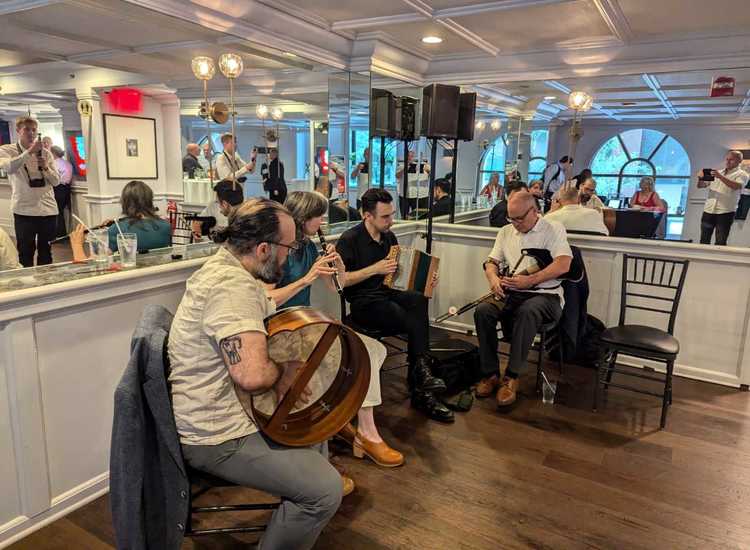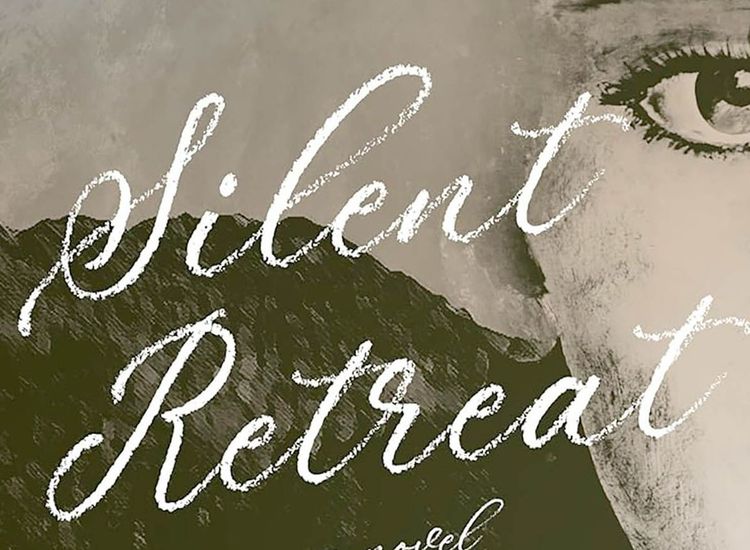[caption id="attachment_69209" align="aligncenter" width="600" caption="Lara Marlowe."]
In her first book, Lara Marlowe profiles French presidential spouse Carla Bruni and actor Isabelle Adjani. In her second, “Painted With Words,” she writes about Picasso and Jean-Paul Sartre. However, whereas the first, “The Things I've Seen: Nine Lives of a Foreign Correspondent,” contains, she said, her best pieces from 30 years of journalism working in the Middle East, Europe, North Africa, the Americas and Afghanistan, the current work, just published by Liberties Press, keeps it focused on literature and painting.
The Irish Times’ Washington correspondent wrote the essays mainly while working for the paper in Paris from 1996 through 2009. The literature side of the story begins with Balzac and the painting somewhat further back with Botticelli and is brought up to our own time. It has in addition a section on Irish artists and writers who have lived in France.
“I tried to explain the relationships and circumstances that influenced artistic creation, and to describe what they achieved,” Marlowe said.
The world-traveled journalist lists France as one of her three favorite countries, alongside Ireland, where she lives part of the year, and her native United States. She said that she also loves “good books, good friends, good wine and food.”
Marlowe added: “In my spare time I swim laps and play the piano, mostly Chopin.”
Year of birth
1957
Place of birth
California
Spouse
Divorced
Residence
Washington D.C.
What is your writing routine? Are there ideal conditions?
The ideal conditions are to walk out to the end of the east pier in Howth, County Dublin, before breakfast in the morning, then savor a pot of Early Grey tea with lemon and sugar, and Irish soda bread, toasted with butter and orange marmalade, while reading the Irish Times. After showering and dressing, I like to sit in my study upstairs, with a fire in the fireplace, and write until lunch. Ideally, my cat Spike would sleep in front of the fire, but he's not allowed to travel from Washington to Ireland because of quarantine regulations. When I write in the afternoon, I like to reward myself with a walk on the cliffs in the early evening, especially in the summer when it stays light until late.
Most of my writing is newspaper journalism, done under the pressure of deadlines. In journalism, there's rarely enough time or space to write to one's own satisfaction, which is why writing books is so attractive.
What advice do you have for aspiring writers?
Don't worry too much about what interests readers; if it interests you, it will interest them. Don't let yourself be intimidated by the blank page. Remember that writing is fun. I once asked the French academician Michel Deon, who is 93 years old and lives in County Galway, if he ever procrastinated before sitting down to write. "Yes," Michel said. "I put it off because it's such a pleasure that I want to draw out the anticipation."
Name three books that are memorable in terms of your reading pleasure.
Harry Clifton's “Secular Eden: Paris Notebooks”; Colum McCann's “Let the Great World Spin”; “Authenticity” and “Molly Fox's Birthday” by Deirdre Madden; Joseph O'Connor's “Ghost Light” and “Star of the Sea” (I know that's more than three, but it was hard to keep the list this short!)
What book are you currently reading?
“Housekeeping” by Marilynnne Robinson.
Is there a book you wish you had written?
There are many. Balzac's “Comédie Humaine”; Joyce's “The Dead Proust's 'Remembrance of Things Past”; Fitzgerald’s “The Great Gatsby”; Baricco's “Silk”...
Name a book that you were pleasantly surprised by.
“The Hare With Amber Eyes” by Edmund de Waal.
If you could meet one author, living or dead, who would it be?
Guillaume Apollinaire, the French art critic and poet who was wounded in the First World War and survived, only to die in the Spanish flu epidemic.
What book changed your life?
There have been so many. As a child, I was deeply impressed by Irene Hunt's "Across Five Aprils," set in the American Civil War, Margaret Mitchell's "Gone With the Wind", O.E. Rolvaag's "Giants in the Earth", a saga of Norwegian immigrants in the Dakota prairies, and John Steinbeck's "Grapes of Wrath." These books gave me a sense of history and a passion for reading. And they made me understand that whatever hardship I encountered, others had endured far worse.
What is your favorite spot in Ireland?
Howth, because it's home.
You're Irish if . . .
You delight in language, enjoy good company and never lose touch with the sadness that runs through all things. There's an attachment to the land too, to salt air, biting wind, rain and green fields. Being Irish (or an American who loves Ireland, in my case) is an attitude, a state of mind. It implies at the same time an openness to the world and a sense of belonging.









